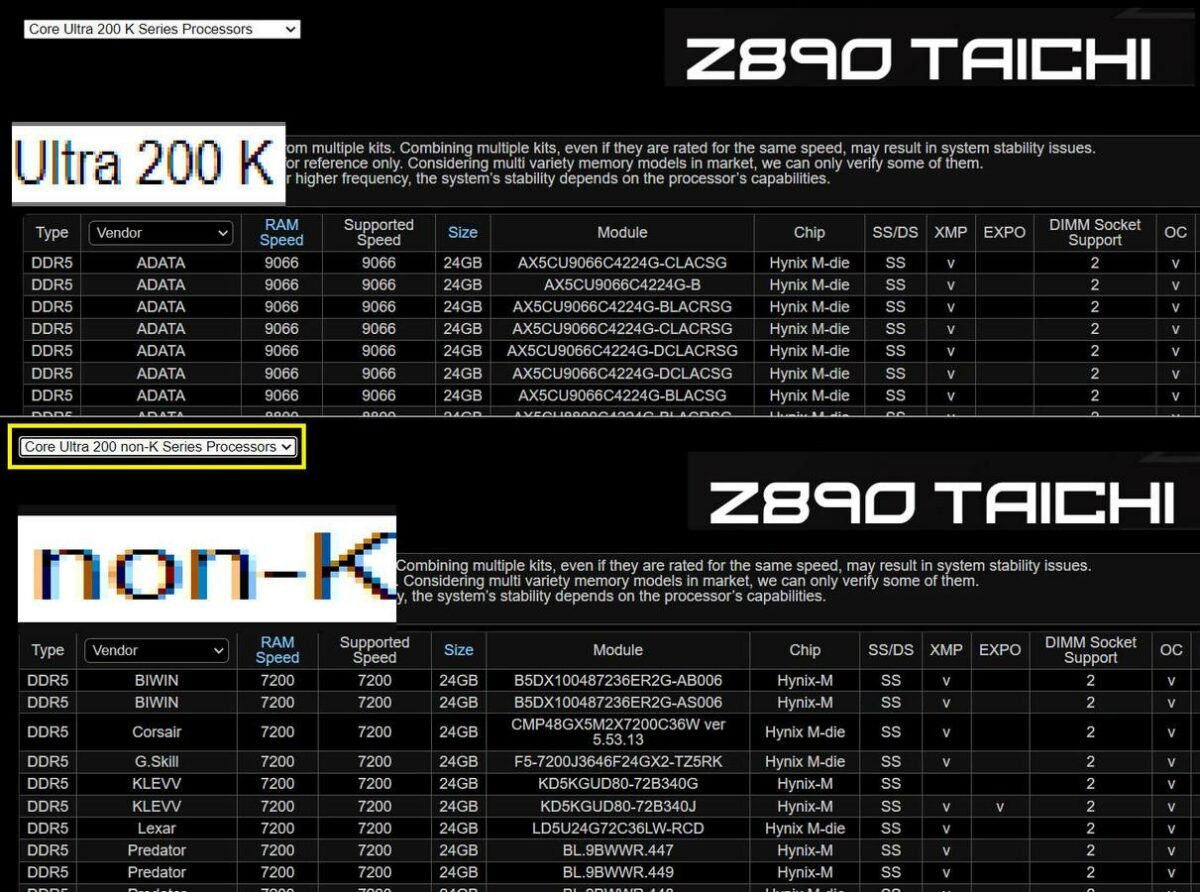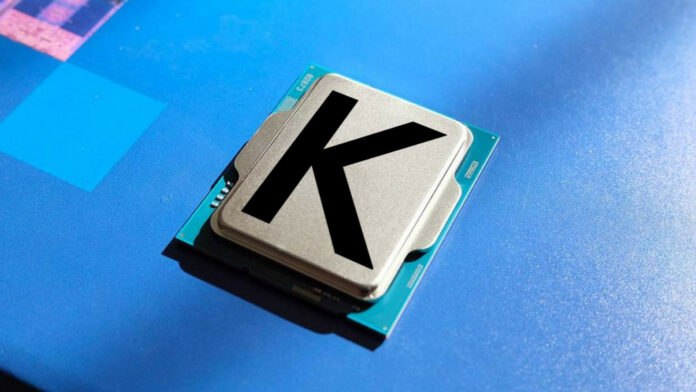Intel Core Ultra 200 non-K processors seem to have lower memory support than their K counterparts. Motherboard makers could be playing it safe or these chips are truly limited.
According to ASRock’s RAM support list for the Z890 Taichi motherboard, the non-K Core Ultra 200 CPUs can’t handle the same memory speeds as their K siblings. The compatibility guide rates these chips at up to DDR5-7200, which is noticeably short of Core Ultra 200K lineup’s DDR5-9066. A difference of up to 1,866MT/s is quite drastic, to say the least, and one you might actually feel in performance.
While most users will be more than happy with DDR5-7200, it still begs the question as to why this is the case. Unless Intel launches two different architectures for its K and non-K CPUs, both should house the same memory controller and be able to reach the same speed.
This could be as simple as ASRock not validating faster RAM since non-K owners likely opt for a cheaper CPU variant to save some money. Market-wise, buyers in this bracket aren’t as frivolous with cash and perhaps won’t invest in beefier memory kits. It’s also possible that the compatibility list isn’t yet exhaustive or complete, and there’s still time for the company to fill in the gaps.
Otherwise, there is something different between the K and non-K chips. Additionally, this speed limit may not concern the new CUDIMM modules, which can maintain higher speeds thanks to their integrated clock generator.

That said, note that motherboard makers’ support lists are simply meant to give you an idea about the capabilities of said boards. More often than not, these boards can handle far more than they get rated for. For instance, some Z790 boards can reach 11,240MT/s even though the manufacturer only lists up to DDR5-8000.
In any case, Intel officially supports up to DDR5-6400 JDEC speed anyway, meaning anything above is the luck of the draw. At the end of the day, if you get a bad silicon lottery, your CPU won’t hit the motherboard’s max speed regardless. All this is to say that there are many factors in this equation, so don’t miss the forest for the trees.


